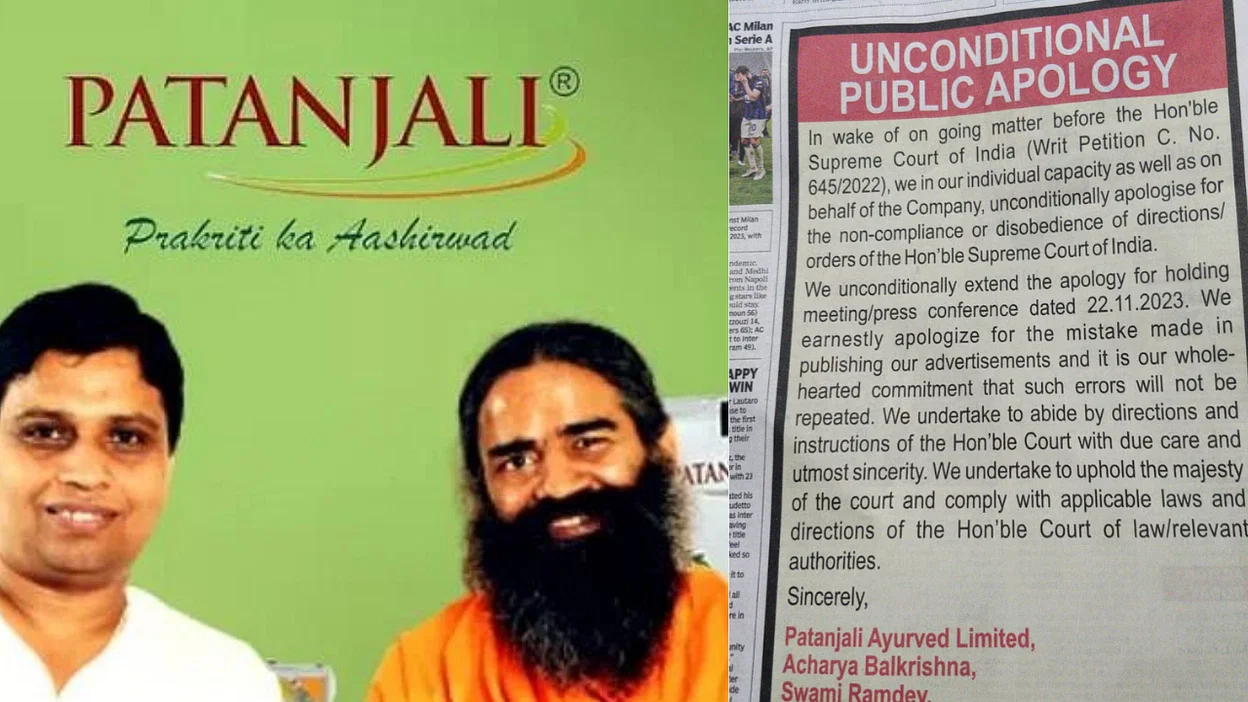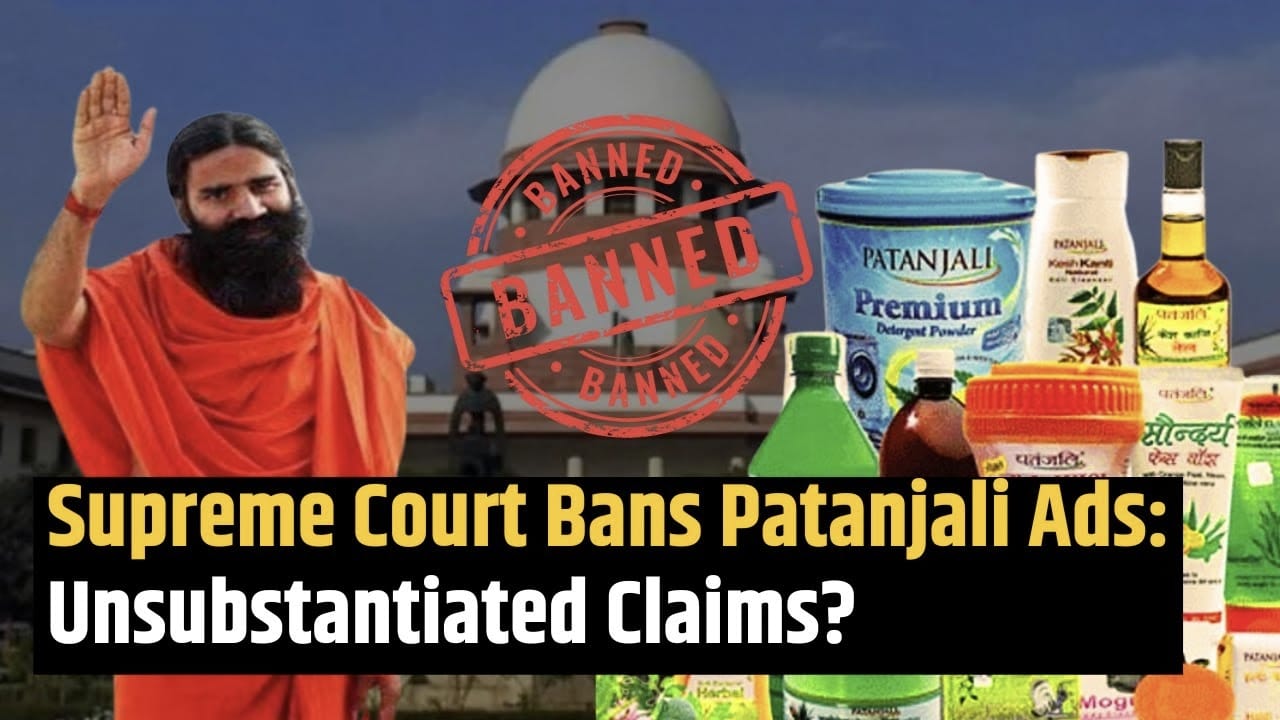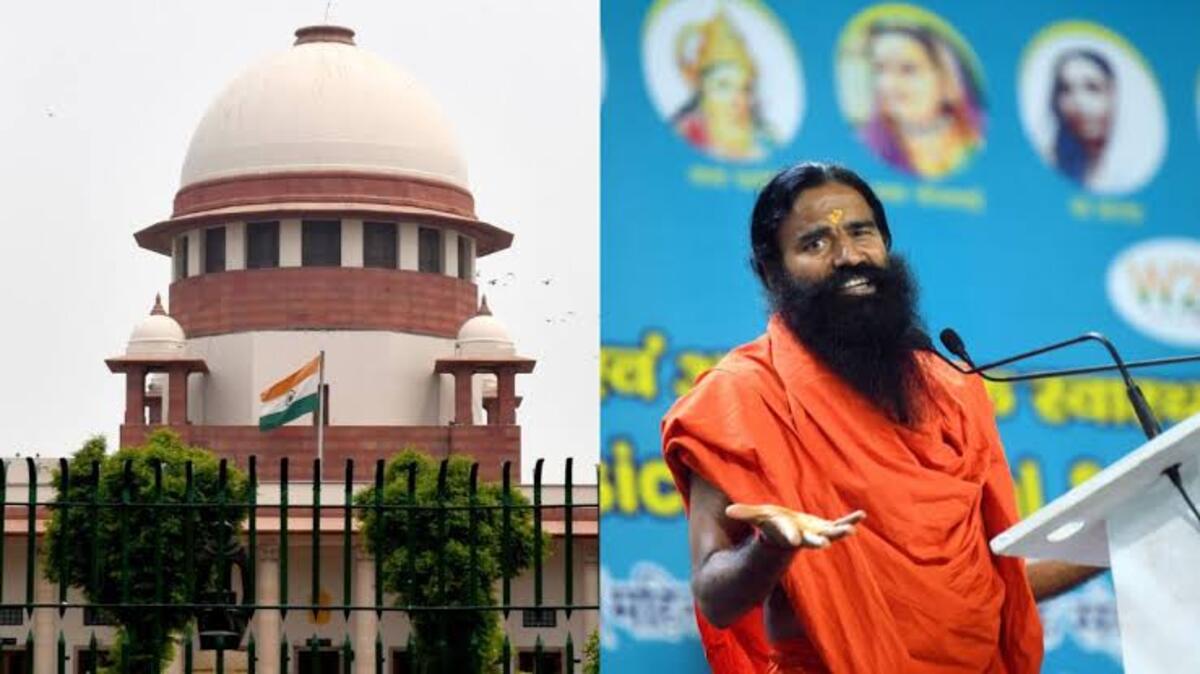Unmasking Patanjali and FMCG’s Deceptive Marketing: Supreme Court’s Stand Against Misleading Ads!
SC takes a stand against misleading ads and deceptive marketing being done by Patanjali and other FMCGs questioning sincerity of their apology.

Unmasking Patanjali and FMCG’s Deceptive Marketing: Supreme Court’s Stand Against Misleading Ads
In a riveting courtroom drama which unfolded recently, the Supreme Court delved deep into the contentious issue of misleading advertisements and deceptive marketing, spotlighting the Patanjali Ayurved saga while also scrutinizing the Indian Medical Association’s (IMA) own practices. The bench, led by Justices Hima Kohli and Ahsanuddin Amanullah, steered through a labyrinth of legal intricacies as it navigated the contours of the case which has ramifications for both public health and commercial ethics. The apex court is hearing a petition filed by the IMA alleging a smear campaign against the COVID-19 vaccination drive and modern systems of medicine.
At the heart of the matter lies the alleged transgressions of Patanjali Ayurved, the brainchild of yoga luminary Baba Ramdev and Acharya Balkrishna. Their purported misleading advertising practices, which claim their medicinal products as ultimate cures for various ailments, have drawn the ire of the Indian Medical Association and prompted the apex court’s intervention. The Apex Court had instructed issuance of public apologies for misleading the general public.
During the proceedings, the Supreme Court did not mince words as it rebuked Patanjali and questioned the sincerity of their apologies in this matter, suggesting they were made under duress and not because they were genuinely apologetic. In the last hearing on April 16, the apex court pulled up yoga guru Ramdev and Patanjali Ayurved Ltd MD Acharya Balkrishna for their apologies saying, “You are doing it because you have no option left.”

Furthermore, during the courtroom confrontation, the Supreme Court turned its scrutiny towards Baba Ramdev, questioning the visibility and magnitude of his apology advertisements in comparison to the extensive marketing blitz that he does for his products. “Have you published the ads prominently?” the Court demanded, highlighting concerns over the difference between the size and reach of the apology he rendered and product ads. Mukul Rohatgi, speaking on behalf of Ramdev, asserted the wide dissemination of the apology across 67 newspapers, yet the Court voiced objections, noting the absence of any documented proof and asked for submission of the same.
The court’s strong criticism did not stop at Patanjali’s actions, it also included the Central government’s decision to remove regulations controlling advertisements for Ayurvedic and Unani drugs. This move caught the attention of the judges panel, who questioned why the Centre instructed states and union territories not to enforce these regulations. In 2023, the Centre announced the removal of Rule 170 from the Drugs and Cosmetics Act.
Rule 170 previously prevented the advertisement of Ayurvedic, Siddha, and Unani drugs without approval from state licensing authorities. The court noted Patanjali’s disregard for this rule whenever faced with action. Consequently, the Supreme Court reprimanded the Centre and hence demanded responses from four ministries regarding their efforts to combat misleading advertisements: Ayush, Consumer Affairs, MIB, and MEITY.

The judicial scrutiny widened to encompass other fast-moving consumer goods (FMCG) companies, with the court invoking the infamous Nestle Baby Food debacle to underscore the gravity of the issue and says it is looking at all FMCG companies that are issuing ‘misleading ads’ and ‘taking public for a ride’. In a bid to safeguard consumers from deceptive marketing tactics, the court emphasized the need for a comprehensive examination of relevant laws governing advertisements and consumer protection.
Our action is not limited to any one party. We are looking at all similarly situated FMCG companies who have been issuing misleading ads, and taking people for a ride. In particular looking at the health of babies and school-going children, who are consuming products on the basis of misrepresentation.
As the courtroom drama unfolded, the Supreme Court’s spotlight also turned towards the Indian Medical Association, challenging its stance against Patanjali while raising questions about its own ethical standards. The SC said that while it is pointing fingers at Patanjali, four fingers are pointing at them. “Your doctors also endorsing medicines in the allopathic field. If that’s happening, why should we not turn the beam at you?,” the Supreme court asked IMA.
“The IMA needs to put its own house in order regarding alleged unethical acts of the petitioner organisation where medicines are prescribed which is expensive and unnecessary,” SC said. “Whenever there is a misuse of the position by the petitioner association to prescribe expensive medicines and the line of treatment needs closer examination,” the bench stated. The SC further clarified that it was not gunning for any particular agency or party in the matter. “This is a PIL. It is in interest of public. This is part of process of rule of law,” the bench said.

Way Forward
With the contempt case adjourned until the next hearing, the stage is set for a legal showdown that promises to reshape the landscape of advertising ethics and consumer protection in the country. However, the fact that Patanjali, a brand building its image synonymous with wellness and spirituality, stands accused of putting profit over people is a bitter pill to swallow. But what is even more disheartening is the realization that they are not alone. The revelation that other FMCG giants have also been peddling deceptive ads, preying on the vulnerability of babies, school children, women, and senior citizens, is a grave betrayal of trust.
Equally culpable in this saga of deceit is the IMA, an institution who is entrusted with safeguarding public health. By turning a blind eye to unethical practices within its ranks while pointing fingers at others, the IMA has eroded its own credibility and further undermined its mission. Moreover, the Central Government’s complicity in this matter cannot be overlooked. The withdrawal of rules regulating advertisements for Ayurvedic and Unani drugs, coupled with lax enforcement of existing laws, has created a breeding ground for deceptive marketing tactics.
In the face of such egregious misconduct, it is little comforting to see the Supreme Court stepping in to demand accountability from such institutions. By ordering a comprehensive examination of relevant laws, including the Drugs and Cosmetics Act, Drugs and Magic Remedies Act, and Consumer Protection Act, the Court is sending a clear message: the era of corporate impunity is over.
However, it is pertinent to realise that mere legal scrutiny is not enough. What is needed is a cultural shift within the industry, one that prioritizes ethics over profits and puts consumers’ well-being above all else. Until then, we must remain vigilant, holding companies, regulators, and professional bodies alike to the highest standards of integrity and transparency. Our health and safety depend on it!






